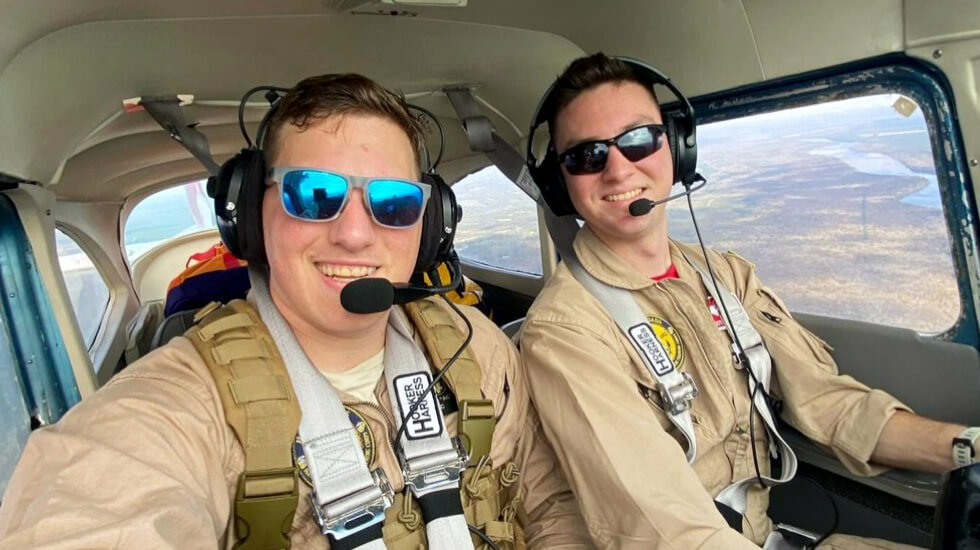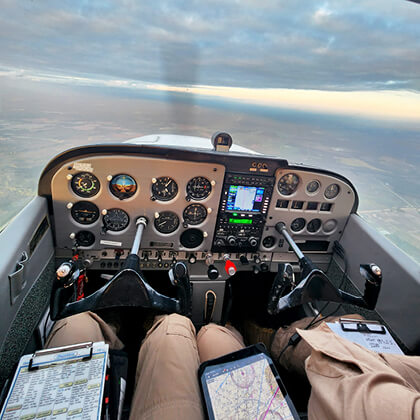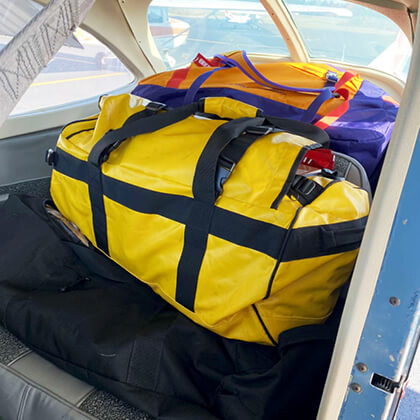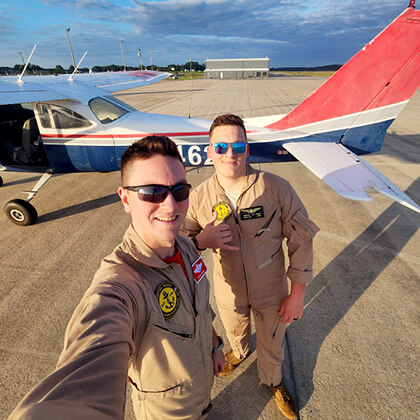Taking the Lead to Serve Hurricane Victims
Ernest Park, CAS ’27 & Austin Graves, CAS ’27

Meteorologists called Hurricane Helene a “once in a thousand-year” weather event. It made landfall in north Florida on September 25 as a Category 4 storm, killing more than 200 people and causing nearly $90 billion of damage across six states.
Record-breaking rainfall in the Appalachian region unleashed horrific flash floods and mudslides—many captured in heartbreaking videos—that shocked and saddened millions of people. Western North Carolina was one of the hardest-hit areas, suffering more than 40% of the total fatalities, with dozens of people still missing weeks after the disaster.
The devastation and loss left behind by Hurricane Helene sparked a massive, nationwide humanitarian effort to help those most affected. Regent University students Ernest Park (CAS ’27) and Austin Graves (CAS ’27) saw an opportunity to alleviate the suffering in North Carolina and knew they had to take action.

“We just had to do something,” Park says. “I have a background in trail building… and everything in that area of Appalachia is built on the sides of the mountains. Because the mountains follow the rivers, everything’s a basin. As soon as I saw that they were predicting three to six inches of rain overnight, I started thinking, ‘Oh, no. Those basins are going to fill up.’”
“I was, literally, praying about a way to incorporate my love for aviation into service and helping those people,” Graves recalls. “I was looking for somewhere I could do something good for the betterment of the community.”
Both young men are in their third year of a five-year program with the Hampton Roads Naval Reserve Officer Training Corps (HRNROTC). Graves has been a licensed civilian pilot for three years and holds certifications in disaster and emergency management. Park is an Eagle Scout and a member of the Order of the Arrow, Scouting’s National Honor Society.
Almost immediately after Helene struck, they began collecting donations of relief supplies from fellow Regent students as part of “Operation Shipmate Support.” They used their own money to rent a small plane that would carry them and hundreds of pounds of humanitarian aid to North Carolina.

“We were supporting a shipmate on the ground,” Park explains. “Her name is Caitlyn Meffen, another midshipman at Old Dominion University in Norfolk, Virginia. She’s a native of Rocky Mount, North Carolina, and they weren’t receiving as much help as they needed. A lot of the focus was on places like Asheville and Chimney Rock.”
“She had to go back to clean up her house,” Graves adds. “It wasn’t totally destroyed, but there was some damage. Caitlyn also had to help run her community. So, we actually communicated with her. She told our company via text, ‘If you can help, I’ll be back next week.’ Ernest and I looked at each other and had the same thought, ‘These supplies are needed now.’ So, we were going to get them down there as soon as possible.”
Graves and Park worked with members of their battalion at seven Hampton Roads-area colleges and universities to organize a food drive and collect other urgently needed items, including baby products, such as diapers and formula. Due to weather conditions, they only had a 30-minute window to touch down in Rocky Mount, unload their 300 pounds of supplies, and get airborne again.
“It was stressful, looking back at that moment,” Graves remembers. “I did a lot of praying, and a lot of people prayed for me. The power of God also helped us and motivated us to get through it by thinking, ‘It’ll be all right. It’ll work out.’ And it definitely did.”
“This was a huge group effort,” he continues. “Everybody really did their part. We were just the ‘sky bus’ drivers who carried it over there.”

When local television station WTKR learned of the pair’s efforts, they featured Graves and Park on a news broadcast and surprised them with the “News 3 Everyday Hero” award. The NROTC students’ actions didn’t surprise Regent University’s Director of Military Affairs, John Cordero. He insists that serving others in this way is embedded in their character and calling.
After returning from North Carolina, Graves and Park learned that another 300 pounds of relief supplies were waiting for them. So, they made arrangements with their fellow midshipman to transport those additional supplies—by land this time—to the disaster zone as quickly as possible.
“Austin Graves’ and Ernest Park’s initiative to provide humanitarian aid at their own expense embodies the spirit of selfless service,” Cordero says. “Their actions reflect their dedication to serving others as future naval officers and their commitment to living out their faith as Christian leaders to change the world.”
“We wore the Regent patch proudly on our flight bags,” Graves shares. “The military is, of course, a focus for us, but our focus is also on God. We have a mission. The mission is to serve each other.”
“I look at that mission statement: Christian leadership to change the world,” Park explains. “It’s about helping those who can’t help themselves in their darkest hours. … It’s not about me; it’s about someone else.”

